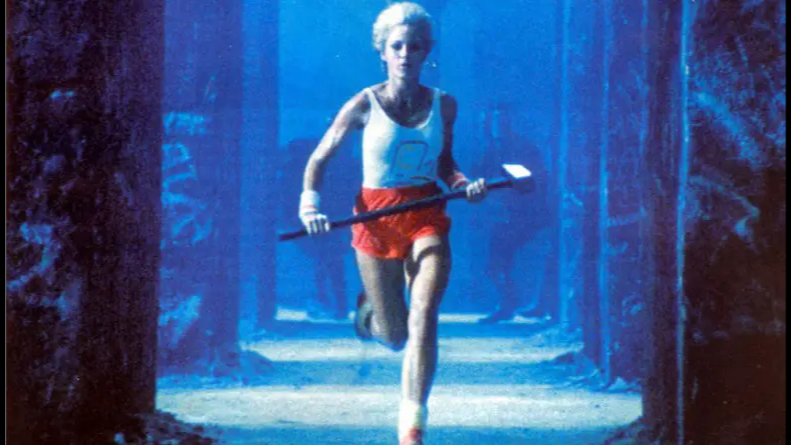Forty Years Later: Lessons from Apple's 1984 as We Reflect on the Celebrity-Driven Ads of Super Bowl 2024

Four decades ago, Apple delivered the groundbreaking "1984" commercial during the Super Bowl, setting a precedent that has yet to be matched. This ad not only revolutionized Super Bowl advertising but also redefined the potential of marketing campaigns to captivate, engage and hold the attention of a mass audience on the biggest stage possible. Its narrative depth, coupled with a daring critique of conformity, introduced a new era of storytelling in advertising, one where creativity and message outweighed the mere showcasing of a product or the dazzling display of star power. And it paid off. In 1984’s pre-Internet, pre-social media, Apple earned $5 million in free television time with post-Super Bowl news discussion across the three networks at the time. Importantly, Apple sold $155 million worth of Macintoshes in the 3 months following the Super Bowl. Apple become the new kid on the block giving IBM a run for their money.
Fast forward to Super Bowl 2024, the landscape of advertising during this coveted event has evolved, with a notable shift towards celebrity endorsements. This year's game drew in 123.4 million viewers, setting a TV ratings record. In our hyper-cluttered world, that is meaningful and potentially helps make the ROI work when you calmly inform your CFO of the $7 million price to air and then of course the cost of production and talent fees.
Stars like Ben Affleck, Jennifer Lopez, and Beyoncé graced this year's commercials, blending entertainment with brand messaging. This trend raises an important question: Who benefits more from these ads—the brands or the celebrities themselves? Beyoncé's strategic drop of new music following her Verizon ad exemplifies the dual advantage of such collaborations, yet also highlights the challenge for brands to ensure their message isn't overshadowed by celebrity shine.
Beyoncé drops two new singles and upcoming second album in her Renaissance trilogy as Verizon ad airs
Amidst the glitz, Pfizer's "Here’s to Science" ad emerged as a beacon of creative audacity, reminiscent of Apple's pioneering spirit. By employing Queen's "Don't Stop Me Now" and animating figures from Isaac Newton to modern-day scientists like Katalin Karikó, Pfizer celebrated the relentless human pursuit of scientific breakthroughs, including its own efforts to combat cancer. This bold approach not only differentiated Pfizer from the celebrity-focused ads but also underscored the enduring power of storytelling and thematic richness in creating memorable and impactful advertising.
Pfizer's Super Bowl ad showed company founders Charles Pfizer and Charles Erhart singing Queen’s “Don’t Stop Me Now" alongside scientific legends like Einstein, Newton, Hippocrates, and Rosalind Franklin.
Pfizer's decision to spotlight the contributions of both renowned and lesser-known scientists, particularly women, added a layer of depth and inclusivity to its message, aligning with the spirit of innovation and discovery that defines the best of Super Bowl advertising. Drew Panayiotou, Pfizer's Chief Marketing Officer, captured the essence of this strategy, noting the Super Bowl's unparalleled platform for reaching diverse audiences with a message of hope and progress. Was it ambitious in its reach? Absolutely it was and it absolutely had to be. To conquer cancer, I often think of words that JFK used when talking about the audacious goal of landing on the moon. I've reframed those words reflecting Pfizer's audacious goal of beating cancer as: "we choose toout do cancerin this decade or earlier, not because it is easy, but because it is hard"
In the end, Super Bowl 2024's ads reflected the complex interplay between celebrity appeal and the quest for meaningful engagementwith audiences. While the allure of star power is undeniable, the legacy of Apple's "1984" ad reminds us that the most lasting impact often comes from ads that make us dare to challenge, inspire, and think differently. Pfizer's venture into the narrative of scientific achievement represents a step in this direction, signaling a path for brands aiming to leave a mark not just on the Super Bowl stage, but in the sustained and profitable growth of the brandand if lucky, the annals of advertising history too.
Photo at top: 1984 Macintosh Commercial by Chiat/Day and Ridley Scott that changed Super Bowl Ads forever
Posted at MediaVillage through the Thought Leadership self-publishing platform.
Click the social buttons to share this story with colleagues and friends.
The opinions expressed here are the author's views and do not necessarily represent the views of MediaVillage.org/MyersBizNet.




